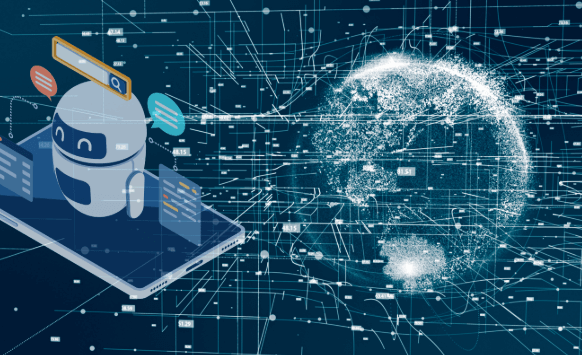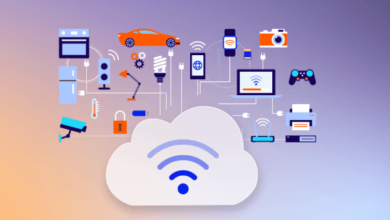The Rise of Generative AI: Transforming Industries in 2025

Generative AI, a rapidly evolving technology, is reshaping industries by introducing unparalleled capabilities in creativity, efficiency, and automation. In 2025, the adoption of generative AI has reached a tipping point, driven by advancements in algorithms, computing power, and the growing need for intelligent solutions. From healthcare to entertainment, generative AI is not just a trend but a transformative force influencing the future of work, business, and society.
What Is Generative AI?
Generative AI refers to artificial intelligence systems designed to create new content, ranging from text and images to music and complex data patterns. Unlike traditional AI, which focuses on analyzing and predicting, generative AI produces original outputs based on training data.
Core Technologies:
- Generative Adversarial Networks (GANs): Used for creating realistic images and videos.
- Transformers: The backbone of models like GPT-4, enabling text and multimodal generation.
Key Differentiators:
Generative AI mimics human creativity, offering solutions in areas previously considered exclusive to human intellect, such as art, storytelling, and design.
Key Advancements in Generative AI
2025 has seen significant breakthroughs in generative AI technology:
- Multimodal AI: Systems capable of processing and generating across text, image, audio, and video modalities.
- Real-Time Generation: Instantaneous creation of high-quality outputs for applications like live customer support or gaming.
- Advanced Models: Innovations like GPT-4.5 and beyond demonstrate improved understanding, reasoning, and creativity.
Applications of Generative AI in 2025
Generative AI is no longer limited to niche applications. It is now integral to various sectors, including:
- Content Creation: From automated blogs to AI-generated music and videos, generative AI powers creative industries.
- Virtual Assistants: Chatbots and virtual agents are more intuitive, enabling natural conversations with users.
- Personalization: Tailored customer experiences in marketing, education, and healthcare.
Transforming Healthcare
In healthcare, generative AI is enhancing patient outcomes through:
- Drug Discovery: AI accelerates the identification of viable drug candidates, reducing costs and timelines.
- Personalized Medicine: AI develops treatment plans based on individual patient profiles.
- Diagnostics: AI-generated models help in the early detection of diseases like cancer.
Impact on Education
Education is undergoing a revolution with the integration of generative AI:
- AI Tutors: Offering personalized instruction and support for students at all levels.
- Customizable Learning Experiences: Tailored lesson plans adapt to individual learning styles.
- Immersive Classrooms: Virtual reality and AI create interactive learning environments.
Generative AI in Entertainment
The entertainment industry is thriving with AI-driven creativity:
- AI-Generated Movies and Games: AI scripts and character designs are making production faster and more cost-effective.
- Enhanced Visual Effects: AI simplifies complex visual tasks, resulting in higher-quality effects.
- Audience-Driven Content Creation: AI analyzes audience preferences to create targeted entertainment.
Revolutionizing E-commerce
Generative AI is redefining the e-commerce landscape with innovative solutions:
- Personalized Recommendations: Tailored product suggestions improve customer satisfaction.
- Virtual Try-Ons: AI-generated models enable customers to visualize products before purchase.
- Marketing Strategies: AI crafts compelling ad campaigns with high conversion rates.
Applications in Manufacturing
Manufacturing processes are becoming smarter and more efficient with generative AI:
- AI-Generated Designs: Advanced algorithms create optimized designs for machinery and products.
- Rapid Prototyping: AI enables quicker transitions from design to prototype.
- Predictive Maintenance: AI analyzes equipment performance to anticipate and prevent failures.
Ethical Considerations
While generative AI offers immense potential, it raises several ethical concerns:
- Bias in AI: Ensuring generated content is free from systemic biases.
- Misinformation Risks: Preventing the misuse of AI to spread false information.
- Data Privacy: Protecting user data from unauthorized access and exploitation.
Challenges in Generative AI Adoption
Despite its advantages, generative AI faces hurdles:
- Computational Costs: High processing power requirements can limit accessibility.
- Skill Gaps: The need for skilled professionals to develop and manage AI systems.
- Regulation: Governments and organizations struggle to establish clear guidelines.
Future Outlook
Generative AI’s trajectory suggests continued innovation:
- Predictions for 2030: AI may fully integrate with robotics, creating autonomous creative systems.
- Emerging Technologies: Quantum computing and advanced neural networks will further enhance AI capabilities.
- Benefiting Industries: Retail, education, and entertainment are expected to see significant growth.
How Businesses Can Leverage Generative AI
Organizations can harness generative AI by:
- Integrating AI into Workflows: Streamlining operations for efficiency and creativity.
- Upskilling Employees: Training teams to work alongside AI technologies.
- Collaborating with AI Providers: Partnering with technology companies for tailored solutions.
Conclusion
Generative AI in 2025 is a game-changer across industries, offering transformative capabilities that enhance creativity, productivity, and efficiency. As this technology continues to evolve, businesses and individuals must focus on ethical adoption and staying ahead of the curve. The rise of generative AI is not just about technological innovation; it’s about reshaping the way we live, work, and interact with the world.
FAQs
1. What is generative AI’s primary function?
Generative AI creates new content such as text, images, music, and designs based on training data.
2. Which industries benefit the most from generative AI?
Healthcare, education, entertainment, e-commerce, and manufacturing are leading beneficiaries.
3. Is generative AI cost-effective for businesses?
While initial costs can be high, generative AI ultimately reduces costs by automating complex tasks.
4. What are the risks associated with generative AI?
Ethical concerns like bias, misinformation, and data privacy are significant risks.
5. How can individuals prepare for a career in generative AI?
Acquire skills in AI technologies, programming, and data science through courses and certifications.
6. Will generative AI replace human creativity?
Generative AI complements human creativity by offering tools to enhance and accelerate the creative process.



